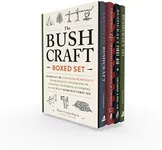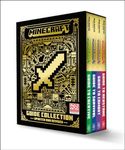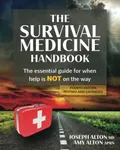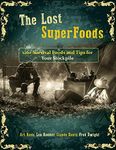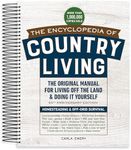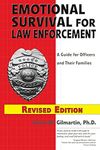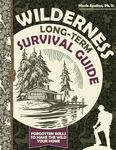Buying Guide for the Best Survival Books
Choosing the right survival book can make a big difference in how well you prepare for emergencies, outdoor adventures, or unexpected situations. The best survival book for you will depend on your experience level, the environments you expect to face, and the type of skills you want to learn. When picking a survival book, it's important to consider what you want to achieve—whether it's basic preparedness, wilderness survival, urban survival, or learning specific skills like first aid or navigation. Understanding the key aspects of survival books will help you select one that matches your needs and learning style.Content FocusContent focus refers to the main topics and skills covered in the book, such as wilderness survival, urban survival, bushcraft, first aid, or food and water procurement. This is important because different books specialize in different areas, and you want a book that matches your interests or the situations you are most likely to encounter. Some books are broad and cover a wide range of topics, while others go deep into a specific skill. If you are new to survival, a general guide might be best, but if you have specific interests or needs, look for a book that specializes in those areas.
Skill LevelSkill level indicates whether the book is aimed at beginners, intermediate, or advanced readers. This matters because a book that's too basic may not teach you anything new, while one that's too advanced could be confusing or overwhelming. Books for beginners usually explain concepts in simple terms and include step-by-step instructions, while advanced books might assume you already know the basics. Think about your current knowledge and choose a book that matches or slightly challenges your skill level.
Illustrations and DiagramsIllustrations and diagrams are visual aids that help explain techniques, tools, and processes. They are important because survival skills often involve practical steps that are easier to understand with pictures. Some books are heavily illustrated, making them easier to follow, especially for visual learners, while others rely mostly on text. If you learn better by seeing how things are done, or if you are new to survival skills, look for books with clear, detailed illustrations.
Portability and DurabilityPortability and durability refer to the size, weight, and build quality of the book. This is important if you plan to carry the book with you outdoors or in an emergency kit. Smaller, lightweight, and weather-resistant books are easier to pack and can withstand rough conditions. If you want a book for reference at home, size and durability may be less important, but for field use, choose a compact and sturdy edition.
Author’s Experience and CredibilityThe author’s experience and credibility relate to their background in survival, outdoor skills, or emergency preparedness. This matters because you want advice from someone who has real-world experience and is recognized in the field. Books written by experts or professionals are more likely to provide reliable, practical information. If you are looking for trustworthy guidance, check the author’s credentials and reputation before choosing a book.
Practicality and UsabilityPracticality and usability refer to how easy it is to apply the information from the book in real-life situations. Some books are theoretical, while others focus on hands-on skills and step-by-step instructions. If you want to learn skills you can actually use, look for books that emphasize practical advice, checklists, and real-world scenarios. Think about whether you want a reference guide or a book that teaches you through exercises and practice.

